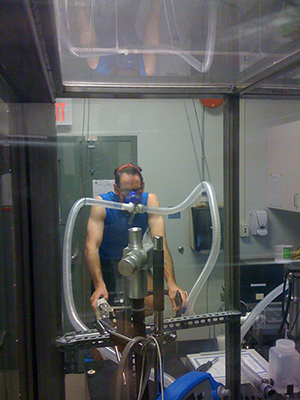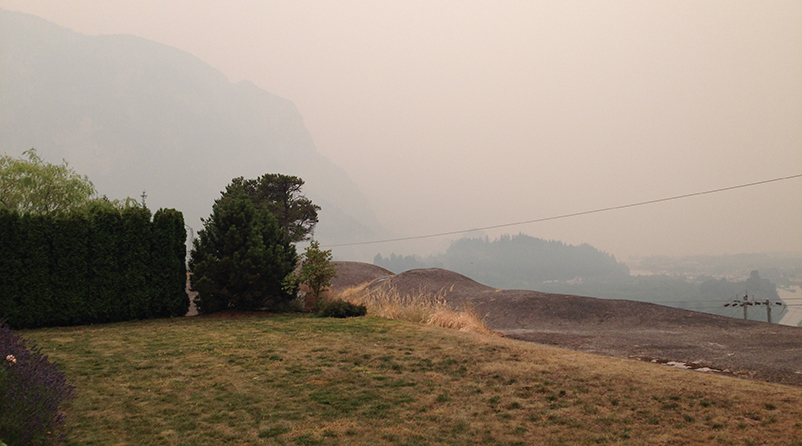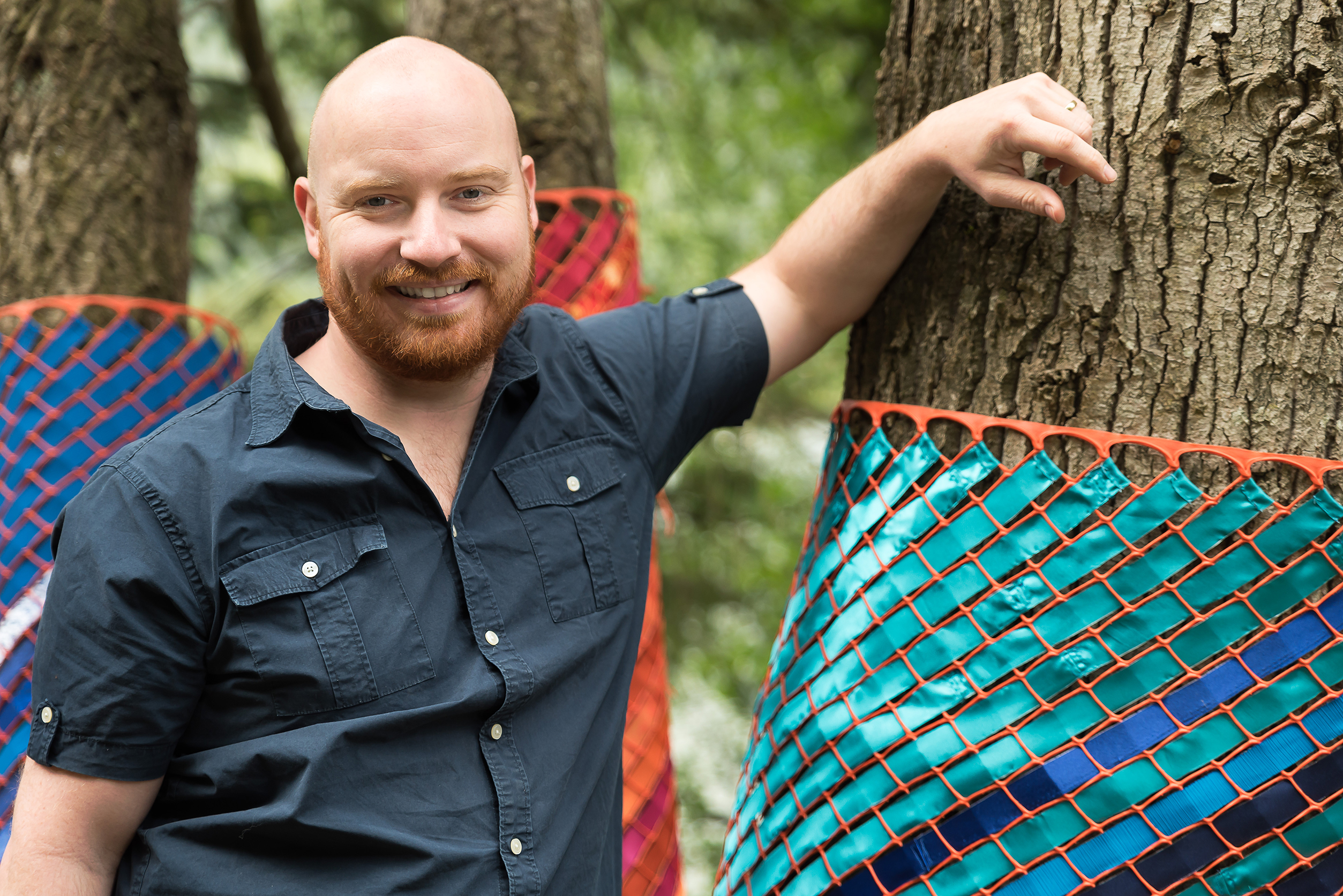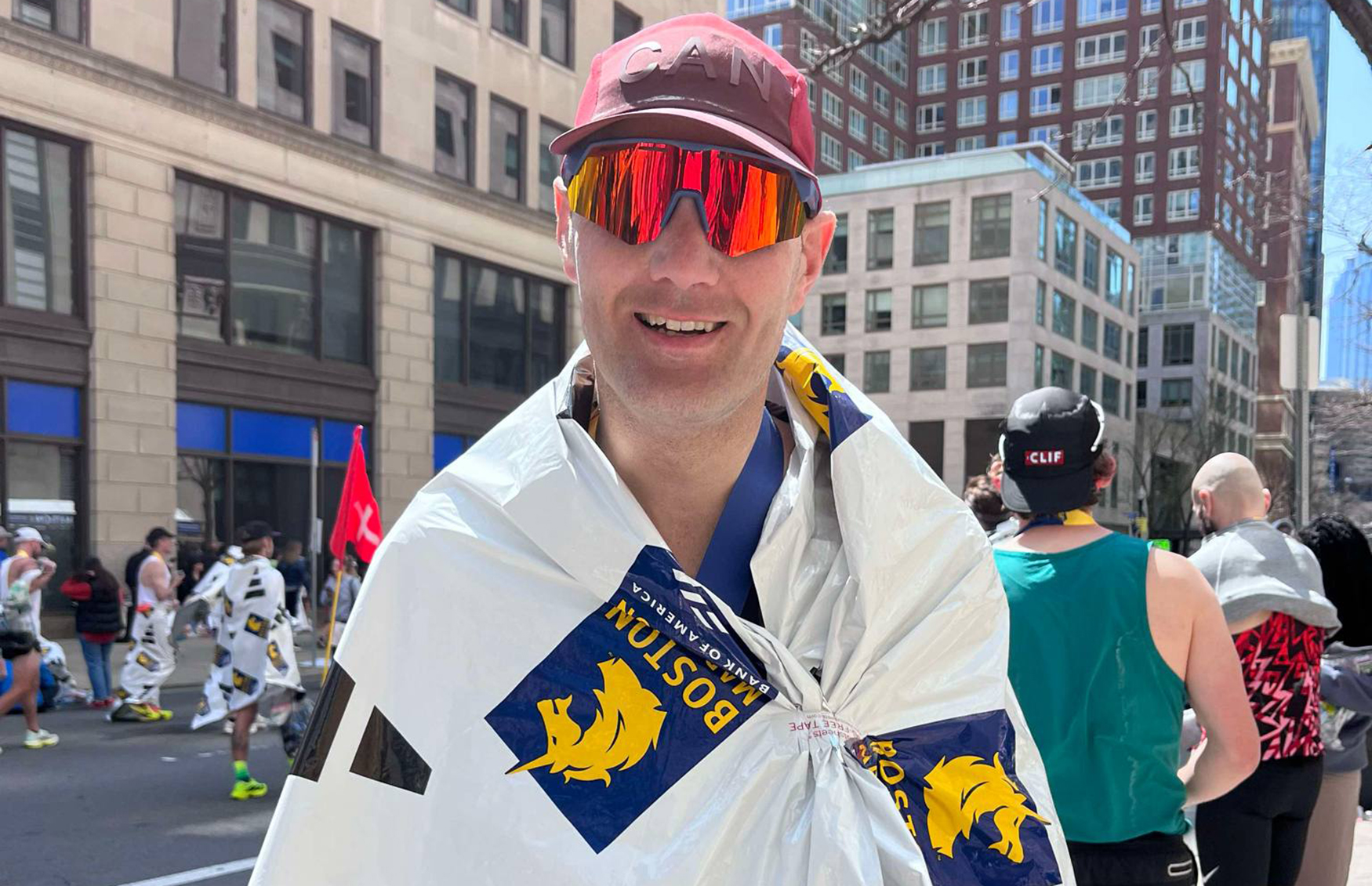UFV’s Kinesiology and Continuing Education collaborate to make exercising safer in a season of poor air quality
The devastating wildfire that destroyed much of Lytton last month was just one of many. More than 300 fires are currently burning in B.C. — all recent examples of a prevalent summer trend sweeping the province over the past half-decade.
On top of the destruction to land and homes, the small particles and toxic gasses released from the smoke can pose significant respiratory damage, according to the BC Centre for Disease Control (BCCDC).
In a region where people are active and prioritize fitness, there is often a cost-benefit analysis associated with exercising in poor air quality.
“When it comes to talking about the balance between exercising and bad air quality and taking days off, we don’t have good data to strictly answer that question,” said Dr. Luisa Giles, an assistant professor in UFV’s Kinesiology department. “But what we do have is data where groups have modeled the risks of the extra pollution, and generally speaking the benefits of exercise outweigh the risks of air pollution exposure.”
Living in Vancouver and working at SFU as a research assistant in the mid-2000s, Giles experienced discomfort in her chest during her bike rides to work. As a result, she has spent the last decade studying the effects that exercising in air pollution has on human health and physiology.
Last year, after securing research funding, she designed a course that would pass on some of the findings of her research to certified fitness professionals and health practitioners. In September 2020, in collaboration with UFV’s Continuing Education (CE) department, the Kinesiology department started the process to develop the professional development course on fitness and air pollution.
“So, working together made perfect sense,” says Continuing Education director Carolyn MacLaren. “Luisa had an excellent course with real value to a specific user group and a course that is to some degree time-sensitive given its topic with air pollution concerns in B.C. increasing dramatically during summer forest fire season. CE was the mechanism through which this course could quickly be made available to learners while maintaining the rigor expected of and provided by all of UFV’s programming.”
The online course, Exercise and Air Pollution, is currently open for registration with a completion date of July 31, 2021 (which may be extended) at a cost of $50. The course aims to highlight Giles’ and other research on understanding the effects of air pollution on the body during exercise, how to analyze the risks of outdoor exercise, and the best practices of combating air pollution during workouts.
“People like kinesiologists and exercise physiologists and personal trainers don’t receive any training on this,” she says. “So, this is an avenue for them to learn about things that really are applicable to their clients.”
“For example, you can sign up for the air quality health index app and it can send you alerts on your phone when the air quality exceeds a certain value.”
Giles points out that reducing or eliminating workouts during poor air quality days may be counter-productive, and the course offers alternatives (such as indoor workouts with a purifier) or ways to mitigate your risk with outdoor workouts.
“It’s really about minimizing your risk because we don’t have lots of comprehensive data,” says Giles, who earned her doctorate degree from UBC. “We do however have a small amount of data that suggests that exercising in high concentrations of air pollution doesn’t make physiological effects worse. But, I always like to have people to adopt the precautionary principle and air on the side of caution until we have more data, which is why I suggest exercising next to an air purifier.”
Creating adaptive and innovative courses that are relevant to topics today is a part of UFV’s mandate. In this case, it is responding to forest fires and air quality issues that have plagued the B.C. region in recent summers.
“At UFV’s CE department, this is central to everything we do and our program development and delivery model allows us to quickly respond to our partner’s education and training needs,” says MacLaren. “This particular course will resonate throughout the province and beyond as there are, unfortunately, no geographical limitations to wildfires.”
Giles is grateful that she is able to share her passion and findings with fitness professionals so they can carry out their jobs in a safer and more efficient fashion.
“Not only is this going to provide professionals with information about air pollution and health, and what the current state of the data is related to exercising,” she says. “But it’s also going to give them insight into the limitations of that research, and give them the opportunity to contextualize it to where they live.”





